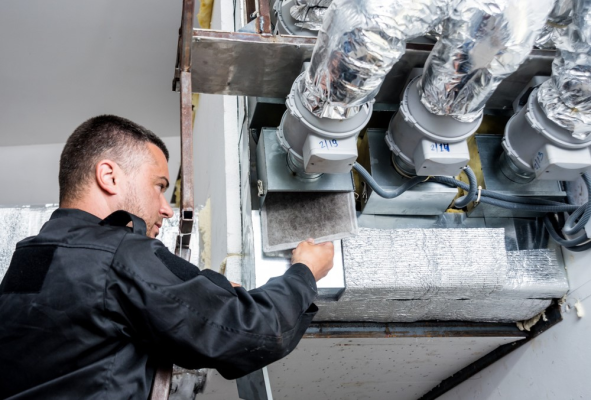Business and Environmental Sustainability: The Importance of Indoor Air Quality Testing and Asbestos Management Services
In today's world, the intersection of business operations and environmental sustainability has never been more critical. Companies are increasingly recognizing that their success is intertwined with the health of our planet and the well-being of their employees. A key aspect of this relationship is indoor air quality (IAQ), which directly affects employee health, productivity, and overall workplace satisfaction. Furthermore, managing hazardous materials like asbestos is essential for maintaining a safe working environment. This blog post explores the significance of indoor air quality testing and asbestos management services in promoting business and environmental sustainability.
Understanding Indoor Air Quality (IAQ)
Indoor air quality refers to the condition of the air within buildings, particularly as it relates to the health and comfort of occupants. Poor IAQ can lead to a range of health issues, including respiratory problems, headaches, and fatigue. Common pollutants include:
- Volatile Organic Compounds (VOCs)
- Carbon Dioxide (CO2)
- Particulate Matter (PM)
- Biological contaminants (mold, bacteria)
To ensure a healthy indoor environment, businesses should consider implementing regular IAQ testing. This proactive approach helps identify potential air quality issues before they escalate, ensuring compliance with health regulations and enhancing employee well-being.
The Role of Asbestos Management
Asbestos, a once-popular building material known for its fire-resistant properties, poses serious health risks when its fibers are inhaled. Exposure can lead to severe diseases such as asbestosis and lung cancer. For businesses operating in older buildings, asbestos management is crucial. This involves:
- Conducting thorough inspections to identify asbestos-containing materials (ACMs)
- Implementing safe removal or encapsulation procedures
- Regular monitoring to ensure that any disturbed ACMs do not pose a risk
Effective asbestos management not only protects employees but also minimizes legal liabilities and regulatory risks associated with non-compliance.
Integrating Sustainability into Business Practices
By prioritizing IAQ testing and asbestos management services, businesses demonstrate their commitment to sustainability. Here’s how these practices contribute to broader environmental goals:
Reducing Health Risks: Improved air quality leads to healthier employees, reducing healthcare costs and absenteeism.
Enhancing Productivity: A clean and safe work environment boosts morale and productivity among staff.
Compliance with Regulations: Adhering to environmental regulations helps businesses avoid fines and enhances their reputation.
Attracting Talent: Companies known for their commitment to employee health and environmental sustainability are more attractive to potential hires.
Conclusion
Incorporating indoor air quality testing and effective asbestos management services into business operations is not just about compliance; it's about fostering a culture of health and sustainability. As organizations strive for greener practices, they must recognize that the health of their employees is paramount. By taking these steps, businesses can create safer work environments while contributing positively to the planet's future.
As we move forward in an era where environmental consciousness is vital for success, let us embrace these practices not only as regulatory necessities but as integral components of our business strategy for a sustainable future.



.png)


Comments
Post a Comment